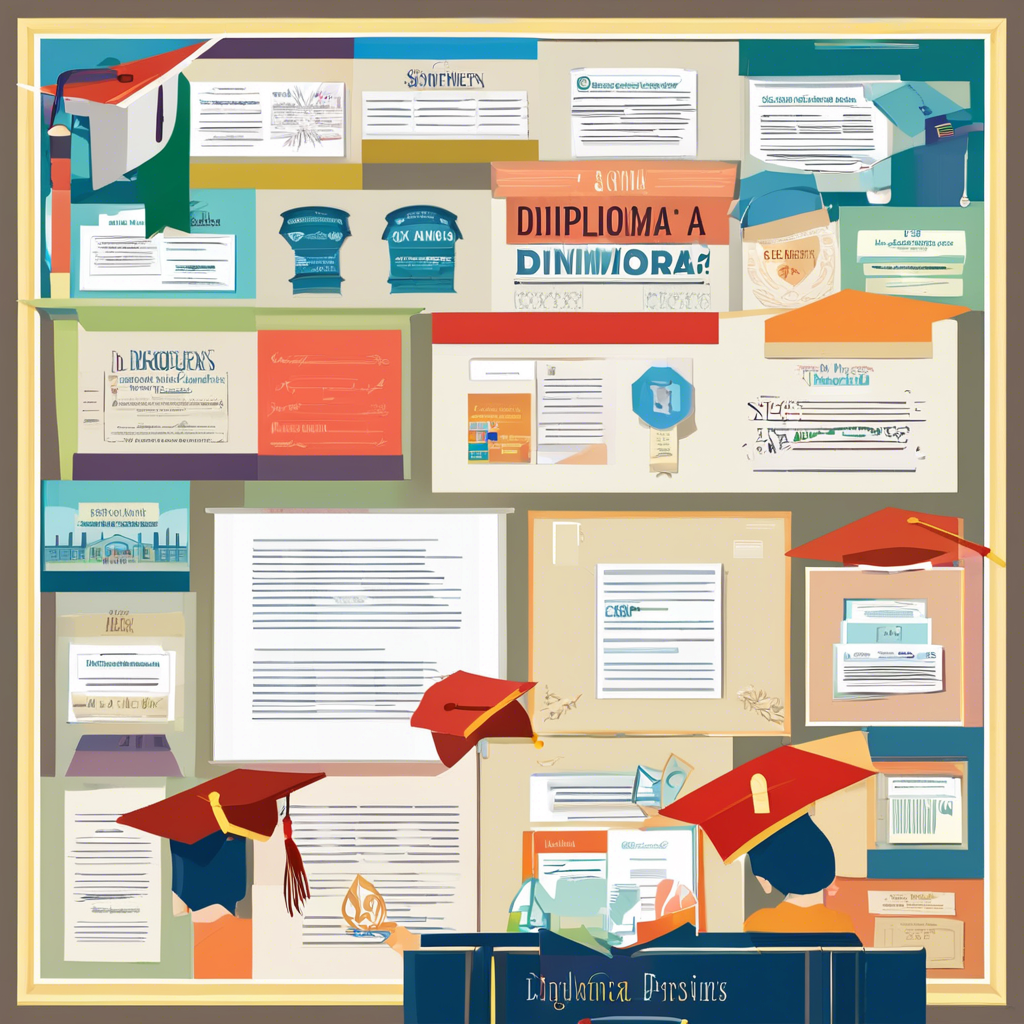Is a diploma a degree? This question often sparks confusion among individuals seeking higher education or contemplating their career paths. In the realm of academia and professional development, the terms “diploma” and “degree” hold distinct meanings, each carrying its own set of implications and benefits. Understanding the nuances between a diploma and a degree is essential for making informed decisions about education and career advancement.
A diploma typically refers to a document awarded upon the completion of a specific course of study or training program. It signifies the acquisition of specialized skills or knowledge in a particular field. Diplomas are commonly offered by technical schools, vocational institutions, and professional training programs. Unlike degrees, which are typically conferred by colleges and universities, diplomas are often more focused and practical in nature, preparing individuals for entry-level positions or specific job roles.
On the other hand, a degree is a formal academic qualification granted by a college or university upon the successful completion of a prescribed course of study. Degrees are generally more comprehensive and in-depth than diplomas, encompassing a broader range of subjects and disciplines. They are often categorized into different levels, such as associate, bachelor’s, master’s, and doctoral degrees, each representing varying levels of educational attainment and expertise.
One key distinction between a diploma and a degree lies in the level of academic rigor and depth of learning involved. While diplomas are usually shorter in duration and more focused on practical skills, degrees entail a more extensive academic curriculum that includes theoretical knowledge, research-based learning, and critical thinking skills. Pursuing a degree often requires a greater time commitment and intellectual engagement compared to earning a diploma.
Another important aspect to consider is the recognition and accreditation associated with diplomas and degrees. In many countries, degrees from accredited colleges and universities hold greater prestige and are widely recognized by employers and academic institutions. On the other hand, diplomas from vocational schools or training programs may be valued for their practical application and hands-on training but could carry less weight in certain professional settings.
In terms of career opportunities and advancement, the choice between a diploma and a degree can have significant implications. While a diploma may provide a more direct path to acquiring specific job skills and entering the workforce quickly, a degree offers broader career prospects and potential for higher earning potential. Many professions require a minimum level of education, often specifying a degree as a prerequisite for certain roles or advancement opportunities.
When deciding between pursuing a diploma or a degree, individuals should consider their long-term career goals, personal interests, and financial considerations. While diplomas offer a more specialized and targeted approach to education, degrees provide a more comprehensive and versatile foundation for professional growth. It is essential for individuals to assess their individual needs and aspirations to determine which option aligns best with their educational and career objectives.
In conclusion, the debate over whether a diploma is equivalent to a degree ultimately depends on the context in which these terms are used and the specific goals of the individual seeking education. Both diplomas and degrees serve valuable purposes in education and professional development, catering to different learning styles, career paths, and aspirations. By understanding the distinctions between diplomas and degrees, individuals can make informed decisions that align with their educational and career aspirations, setting the stage for success in their chosen fields.

